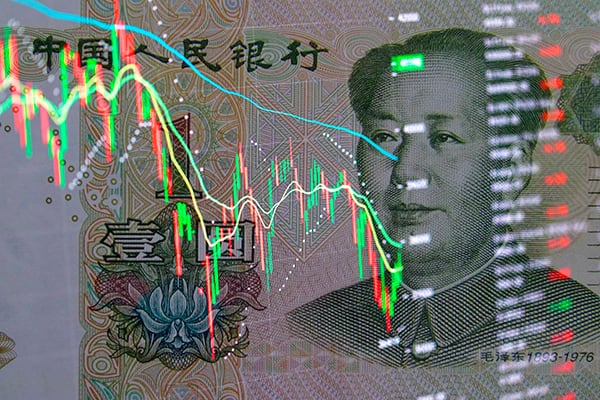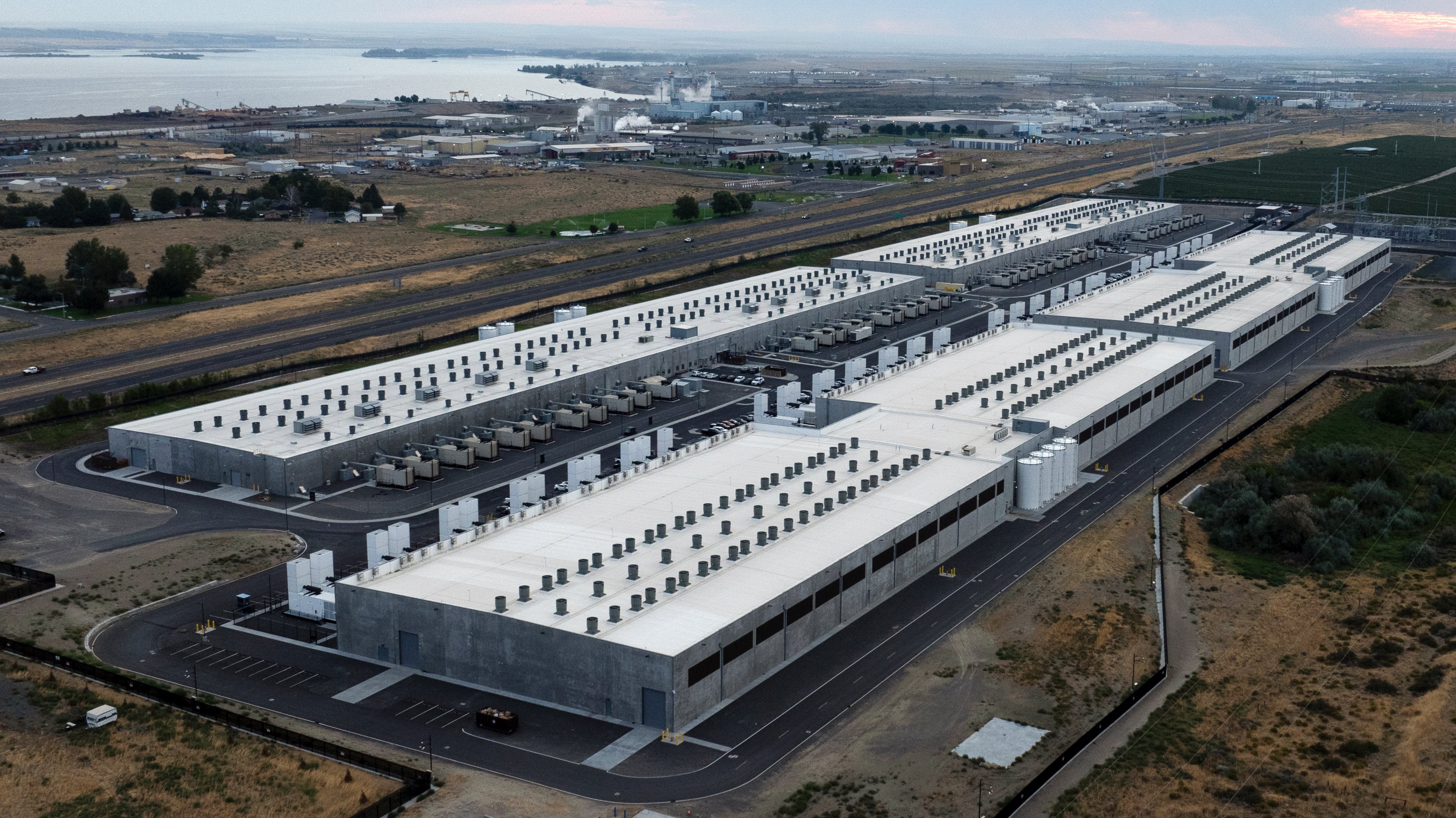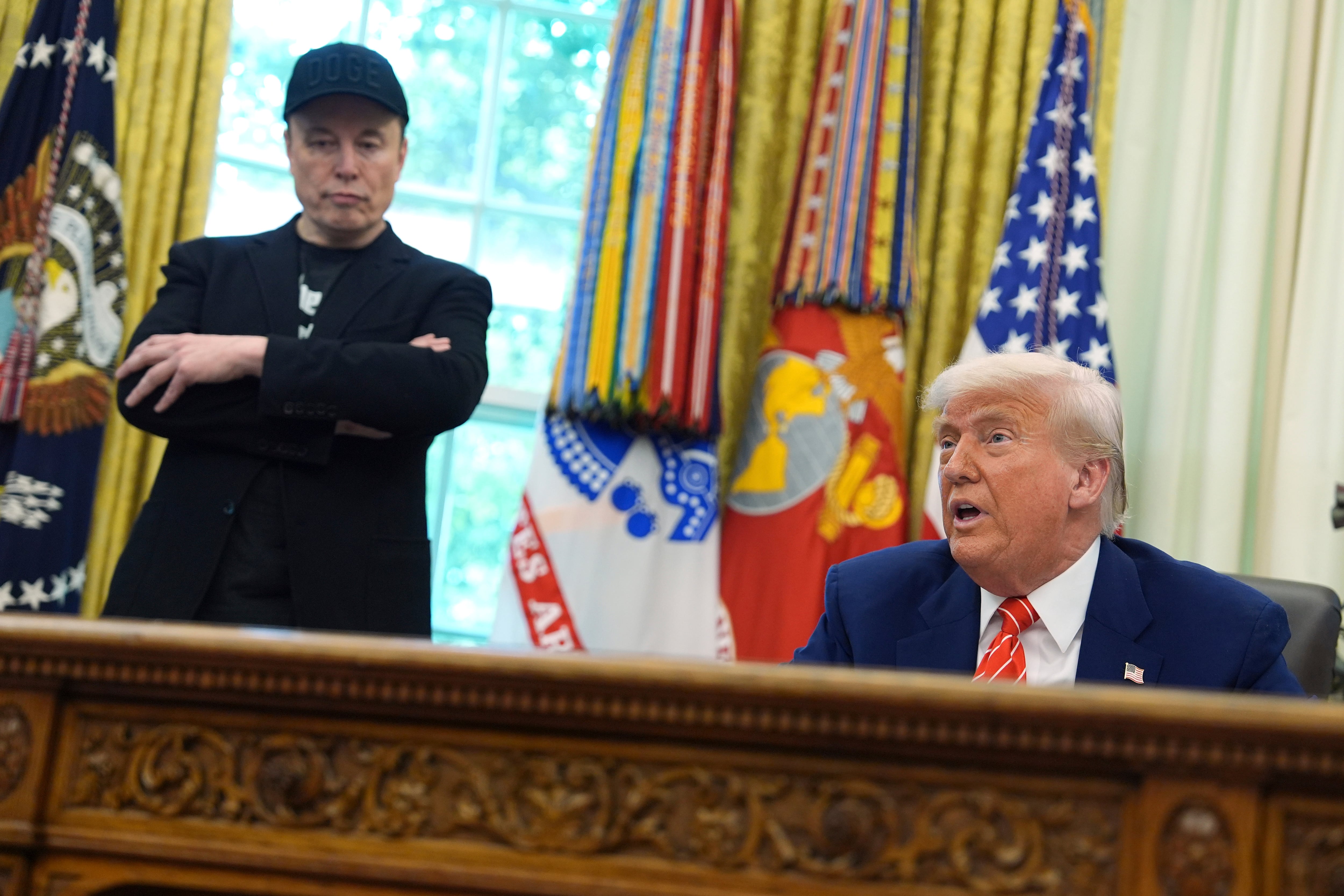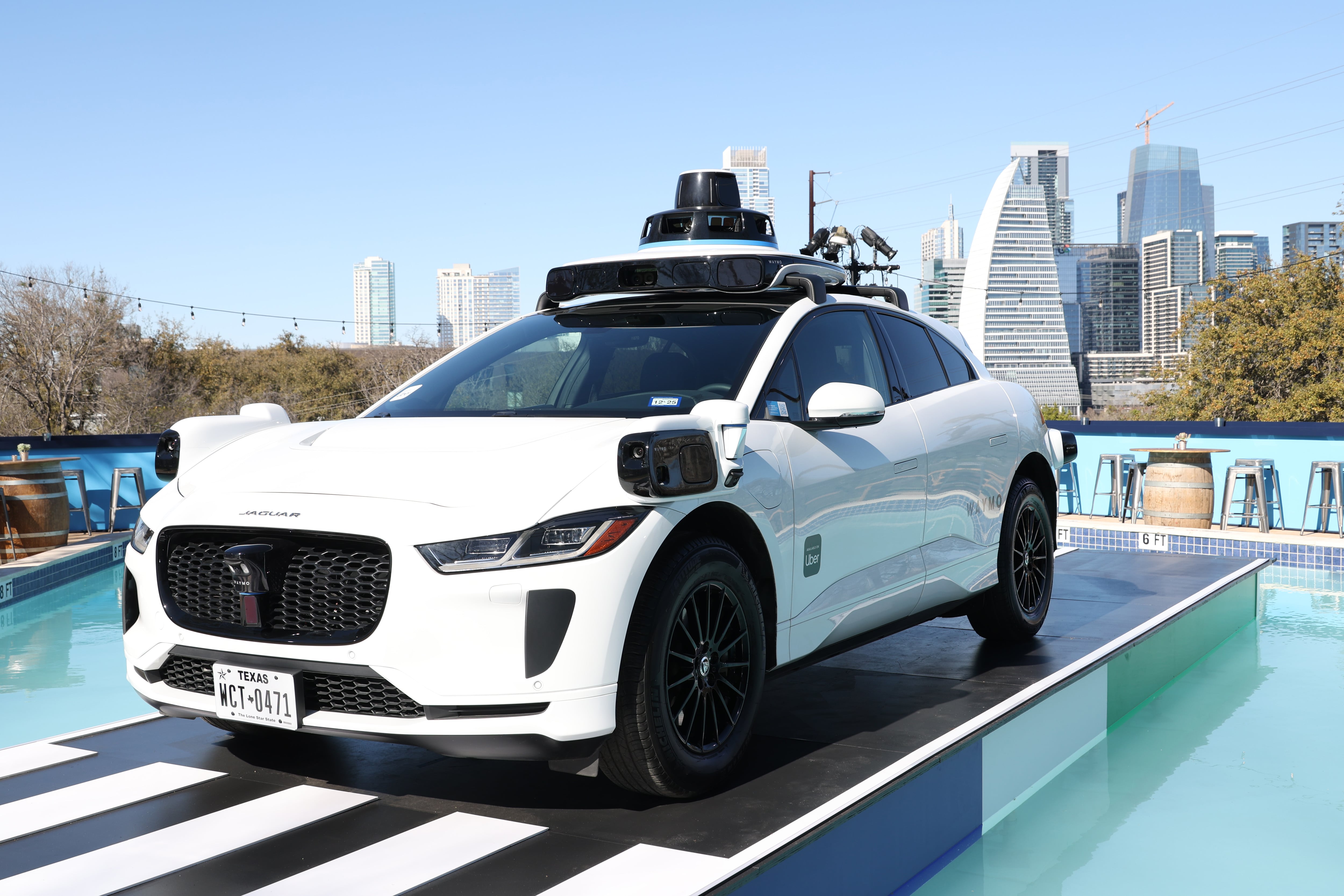The Usual Suspects
- WeWork Won’t Work: Adam Neumann, the brash young Israeli-American who convinced Japanese mega investor Masayoshi Son and his SoftBank fund to throw $16 billion at the concept of shared workspaces, told The New York Times that he’s given up trying to buy We Work’s remains.
- Losers can’t be choosers: Nelson Peltz and his Trian Fund collected $3.5 billion of Disney stock in a bid to shake up the House of Mouse. But after spending $25 million in one of Wall Street’s most expensive proxy battles, he failed to win a seat on Disney’s board and is selling off his stake. But don’t cry for Peltz. His shares are worth almost 20 percent more today than what he paid for them.
- Elon News: It’s been a busy week for everyone’s favorite 420-positive, trash-tweeting futurist. Musk raised $6 billion for his late-to-the-game artificial intelligence venture xAI, which has been using Twitter—um, X—to train its AI bot, Grok; Space X’s competitors accused him of muscling them out of the lucrative space market; Tesla shareholders were advised by proxy firm Glass Lewis to shoot down a proposed $48 billion pay package for Musk because it would dilute shareholders’ stakes; and the Wall Street Journal reported that Musk has been chatting with Donald Trump about holding some kind of advisory post, should the latter win the election in November.
- Core business: Apple is expected to introduce a slew of AI tools with iOS18 at its Worldwide Developers Conference in June, with an upgraded operating system codenamed Project Greymatter that will bring to your phone or iPad everything from virtual and augmented reality to AI-generated personal assistance.
- Dimon’s in the rough: JPMorgan Chase chief Jamie Dimon, who’s run the show for 18 years, says he’ll be retiring within the next five years, and said he’s increasingly worried about U.S. debt.
Big Deals — Big Energy just keeps getting bigger
This week ConocoPhillips (COP) said it would buy Marathon Oil in an all-stock deal that values Marathon (MARA) at $22.5 billion — including its debt. Then shareholders at Hess (HES), another oil and gas giant, agreed to sell their company to Chevron, the second-largest U.S. oil and gas firm, in another all-stock deal, valuing Hess at $53 billion.
Despite stepped-up antitrust action by the Justice Department, M&A is the name of the game for the oil and gas industry. The energy giants made record profits on high pump prices and are sitting on mountains of cash. Last year saw $250 billion worth of deals struck in the industry. Another driver is new technology that lets drillers get more fuel out of the same holes. “We’re heading into a period of kind of Shale 2.0, which is more about using technology and efficiencies, data analytics and some of the refrack potential that allows us to extend some tier one inventory,” ConocoPhillips CEO Ryan Lance said.
The Hess deal is still not signed, sealed or delivered, however. Part of what makes Hess so appealing is its stake in a project off the coast of Guyana, in South America. But Hess’s partner in that deal, Exxon Mobil (XON), claims first dibs on its Guyana stake. The dispute is headed to arbitration, and may not be resolved until next year. The stock market isn’t sure the deal will close soon, with shares of Hess falling a dollar this week, while Chevron shares have held steady.
Media messes
One-time digital news hits BuzzFeed and The Daily Beast are in trouble again. The youth-oriented Beast is looking to trim staff, with 15 or more of its 47 unionized staffers potentially on the chopping block.
But the pruning may mean The Daily Beast will turn in its first-ever profit.
The cuts are the first clear move by new editorial top dog Joanna Coles, a 62-year-old former editor of Cosmo, and young whippersnapper Ben Sherwood, 60, the new CEO, who once ran Disney’s television unit.
Meanwhile, the all-you-can-eat word-salad bar that is Vivek Ramaswamy has taken an 8.7 percent stake in Buzzfeed, and is now trying order around founder and CEO Jonah Peretti. Ramaswamy wants BuzzFeed to apologize for everything it has ever published and hire right-wing talking-pointers Tucker Carlson, Candace Owens and Aaron Rodgers, because he said “BuzzFeed has lost its way.”
Peretti responded that Ramaswamy has “some fundamental misunderstandings about the drivers of our business, the values of our audience, and the mission of the company.” And no, Perretti said he’s not going to apologize for a Pulitzer-winning series on China’s detention of Uighur Muslims.
IMF says China’s gonna just keep doing what China does
Fears of a slowdown in China’s economy, the world’s second largest after the U.S., appear to be overblown, the International Monetary Fund said this week. The IMF released a forecast that shows China continuing grow at high speed, but that has raised more alarms that China is trying to export itself out of financial crisis by flooding global markets with cheap goods.
“Risks are tilted to the downside,” the report said in IMF-speak, warning that despite revised projections of 5 percent GDP growth this year, and 4.5 percent growth next year, China has to shrink its great real estate bubble — 4 million empty apartments are bringing both developers and individual investors close to default.
A vague government plan to buy up the unsold or unviable apartments has drawn skepticism, and the IMF also warned that the country’s aging population, the result of the one-child policy, will help push growth down to a more sustainable 3.3 percent by the end of the decade.
The IMF made it clear that China is still riding a wave that could break at any moment, and still required significant changes in the way the economy runs. “Key priorities include rebalancing the economy towards consumption by strengthening the social safety net, liberalizing the services sector, and scaling back distortive supply side policies that support the manufacturing sectors,” the IMF said in its report.
The Fund’s call for China’s tightly controlled economy to raise spending on social services in order to bolster domestic consumer spending may not be welcome. Supreme leader Xi Jinping has long frowned on what he dismisses as handouts, warning the country should “steer clear of the idleness-breeding trap of welfarism,” The New York Times noted.
The biggest danger to China’s growth may come from its vast success. With 35 percent of global manufacturing, China worries other nations. President Biden has slapped 200 percent tariffs on Chinese electric vehicles, and Treasury Secretary Janet Yellen has warned that letting China export its way out of a potential recession would threaten jobs and industries in other countries.
Is Abercrombie back?
Remember Abercrombie & Fitch? The teen-fave mall retailer with bodaciously built male and female shop assistants who doubled as swimsuit models? Well, after a long, long winter, it’s back. The firm posted it best first quarter in company history this week, reporting net sales of $1 billion, up 22 percent from last year and far above analyst expectations.
Its sister brand, Hollister, had a 12 percent growth in comparable sales, and Abercrombie’s shares (ANF) rose 20 percent to $187 on Wednesday. As Fortune reported, “the company owes its blowout numbers to savvy clearance sales, a pull-back on promotions and inventory, and its grasp on what’s in vogue, like the wide-leg, low-rise jean.” But most importantly, “a deep understanding of changing post-pandemic cultures.” The key was a focus on dressing young professionals for all parts of their lives, “a shift that fit with the post-COVID trend of casual dress.”
PayPal is using your data to sell ads. You won’t be getting a cut.
PayPal, the digital payment company that effectively invented the business, is waking up to all that data you’ve given them about buying habits, purchasing power and the like. They’ve hired the former head of Uber’s ad business to run newly created PayPal Ads. The aim is to sell ads to retailers who can target you with ever greater precision based on your actual shopping habits and bank or credit card balances, not just the ads you click on. PayPal Advanced Offers uses AI and your data to help merchants target PayPal users with personalized promotions, and it only charges advertisers when you make a purchase. The ads are already running on eBay and Zazzle.
The economy’s up! The economy’s down!
Most Americans think the country is in a recession when it’s not. A poll this month, taken for The Guardian by the respected Harris Poll, shows the extent of the problem, with a majority of Republicans — and nearly half the Democrats surveyed — believing the U.S. economy is shrinking, and blaming President Joe Biden. In fact, the economy is growing, and the only recent recession was at the onset of the Covid epidemic in 2020, under President Donald Trump. Highlights:
- 55 percent believe the economy is shrinking, and 56 percent think the U.S. is experiencing a recession, even though the economy is growing.
- 49 percent believe the S&P 500 is down for the year, though the stock index rose 24% in 2023 and is up more than 12 percent this year.
- 49 percent believe that unemployment is at a 50-year high, even though the unemployment rate has been under 4 percent, a near 50-year low.
Peter S. Green is a veteran reporter and editor who has spent more than two decades covering business and finance from Eastern Europe to New York City, and has worked for Bloomberg News, The New York Post, The New York Times and The Messenger. He lives in New York City and is always looking for the next big story.









